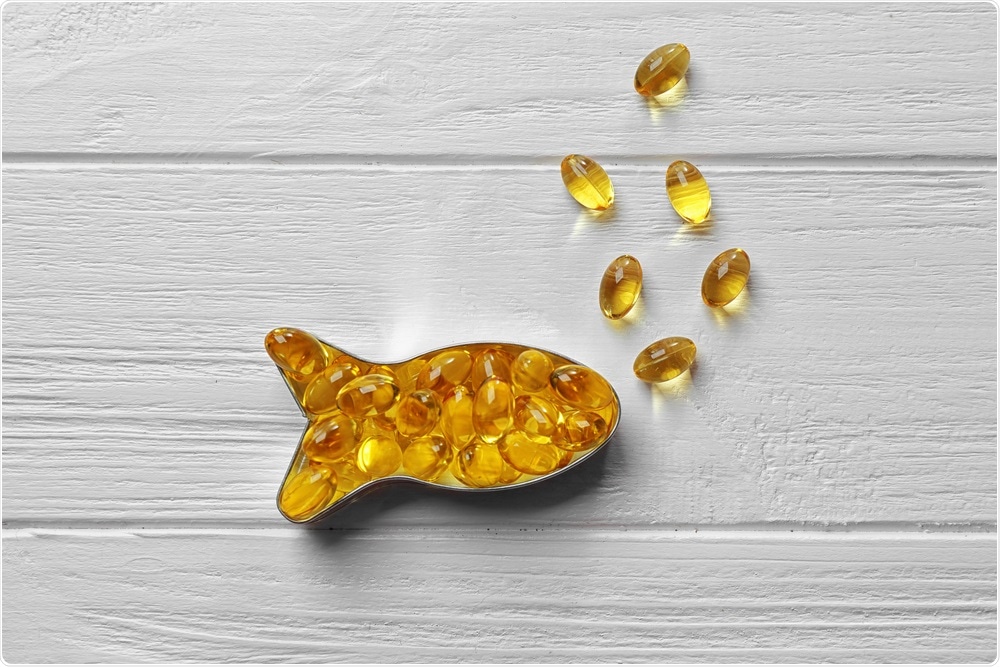
Childhood asthma may be eased by omega-3 intake
A small study has suggested that symptoms of childhood asthma may be eased by omega-3 intake, while omega-6 may aggravate the condition.
 Africa Studio | Shutterstock
Africa Studio | ShutterstockThe study was published in the American Journal of Respiratory and Critical Care Medicineand included 135 children with asthma who were enrolled in the AsthmaDIET Study.
Aged 5 to 12, all of the children were living Baltimore’s inner city. Their diet, asthma symptoms, and their use of asthma medications were assessed at the beginning of the study and then again at three and six months into the study.
Blood samples were also taken during each assessment, and devices that measured levels of air pollutants were installed in participants’ homes for the duration of the study.
The motivation for the research was to identify the relationship, if any, between omega-3 and omega-6 fatty acid intake and pediatric asthma morbidity.
The scientists also wanted to investigate the association between the intake of fatty acidsand the severity of asthma symptoms related to particulate matter (PM), systemic inflammation, and the frequency of medication use.
Sources of omega-3 fatty acids include fish and other types of seafood, nuts and seeds, plant oils such as flaxseed, soybean, and canola oil, and fortified foods such as certain brands of eggs, yogurt, juice, and milk.
Omega-6 fatty acids can be sourced from a number of oils, including corn, safflower, sunflower, grapeseed, soy, peanut, and vegetable. It can also be found in mayonnaise and salad dressings.
Omega-6 ‘amplifies’ symptoms
The results of the study showed that higher intake of omega-6 was “associated with increased odds of increased asthma severity”. Increased omega-6 intake also produced higher blood levels of neutrophils, which are a type of white blood cell that play a role in inflammation.
Conversely, higher intake of omega-3 was associated with “reduced effect of indoor PM 2.5 on symptoms”. The effects of indoor PM 2.5 of symptoms were amplified with an increased intake of omega-6.
The authors conclude:
More research is needed
Dr. Emily P. Brigham, who led the study, is an assistant professor of medicine at Johns Hopkins. She addressed the limitations of the study and warned against making large changes to diet and lifestyle in asthma patients before more studies are carried out.
Similar studies with smaller cohorts have been carried out in the past. One such study, published in the European Respiratory Journal and led by Linda Hodge of the Institute of Respiratory Medicine in Sydney, Australia, found that “changing the fatty acid intake had no effect on any clinical measure of asthma severity in […] asthmatic children,” and that “in children with existing asthma, modification of fat intake is unlikely to have any short-term therapeutic benefit.”
This study also hypothesizes that one mechanism causing reduced asthma symptoms in children may be the intake of an omega-3 rich diet in early life or in prenatal stages, which may “prevent the development of asthma by reducing inflammatory responses to allergens in susceptible individuals.”
Although the results were not clinically significant, the authors suggest that long-term intake of omega-3 may reduce asthma symptoms.
This conclusion agrees with Brigham’s belief that more controlled studies are needed to definitively prove a link between omega-3 intake and reduced asthma symptoms.



































No hay comentarios:
Publicar un comentario